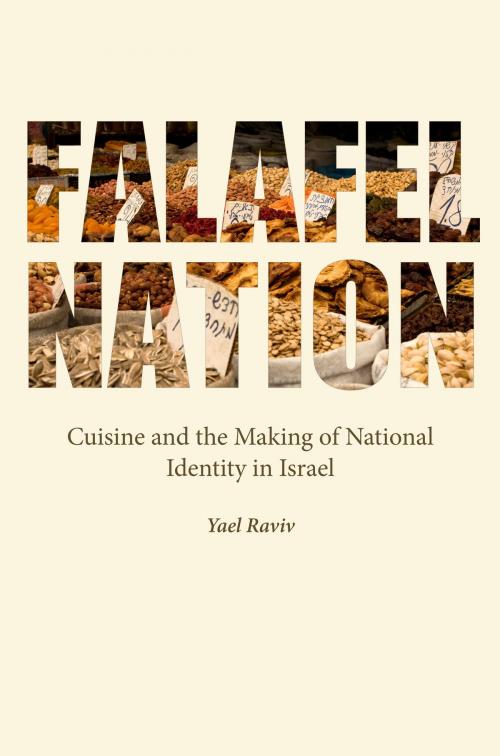Falafel Nation
Cuisine and the Making of National Identity in Israel
Nonfiction, Food & Drink, International, Jewish & Kosher, History, Middle East, Israel, Social & Cultural Studies, Social Science| Author: | Yael Raviv | ISBN: | 9780803290211 |
| Publisher: | UNP - Nebraska | Publication: | November 1, 2015 |
| Imprint: | University of Nebraska Press | Language: | English |
| Author: | Yael Raviv |
| ISBN: | 9780803290211 |
| Publisher: | UNP - Nebraska |
| Publication: | November 1, 2015 |
| Imprint: | University of Nebraska Press |
| Language: | English |
When people discuss food in Israel, their debates ask politically charged questions: Who has the right to falafel? Whose hummus is better? But Yael Raviv’s Falafel Nation moves beyond the simply territorial to divulge the role food plays in the Jewish nation. She ponders the power struggles, moral dilemmas, and religious and ideological affiliations of the different ethnic groups that make up the “Jewish State” and how they relate to the gastronomy of the region. How do we interpret the recent upsurge in the Israeli culinary scene—the transition from ideological asceticism to the current deluge of fine restaurants, gourmet stores, and related publications and media?
Focusing on the period between the 1905 immigration wave and the Six-Day War in 1967, Raviv explores foodways from the field, factory, market, and kitchen to the table. She incorporates the role of women, ethnic groups, and different generations into the story of Zionism and offers new assertions from a secular-foodie perspective on the relationship between Jewish religion and Jewish nationalism. A study of the changes in food practices and in attitudes toward food and cooking, Falafel Nation explains how the change in the relationship between Israelis and their food mirrors the search for a definition of modern Jewish nationalism.
When people discuss food in Israel, their debates ask politically charged questions: Who has the right to falafel? Whose hummus is better? But Yael Raviv’s Falafel Nation moves beyond the simply territorial to divulge the role food plays in the Jewish nation. She ponders the power struggles, moral dilemmas, and religious and ideological affiliations of the different ethnic groups that make up the “Jewish State” and how they relate to the gastronomy of the region. How do we interpret the recent upsurge in the Israeli culinary scene—the transition from ideological asceticism to the current deluge of fine restaurants, gourmet stores, and related publications and media?
Focusing on the period between the 1905 immigration wave and the Six-Day War in 1967, Raviv explores foodways from the field, factory, market, and kitchen to the table. She incorporates the role of women, ethnic groups, and different generations into the story of Zionism and offers new assertions from a secular-foodie perspective on the relationship between Jewish religion and Jewish nationalism. A study of the changes in food practices and in attitudes toward food and cooking, Falafel Nation explains how the change in the relationship between Israelis and their food mirrors the search for a definition of modern Jewish nationalism.















